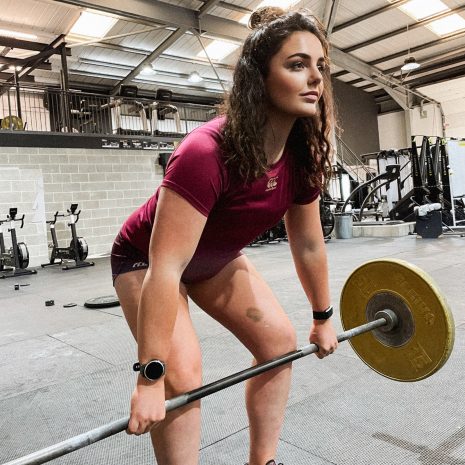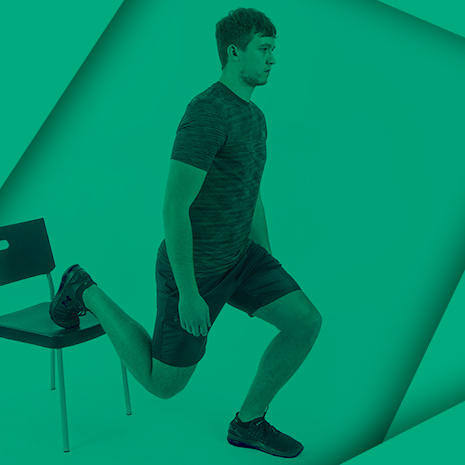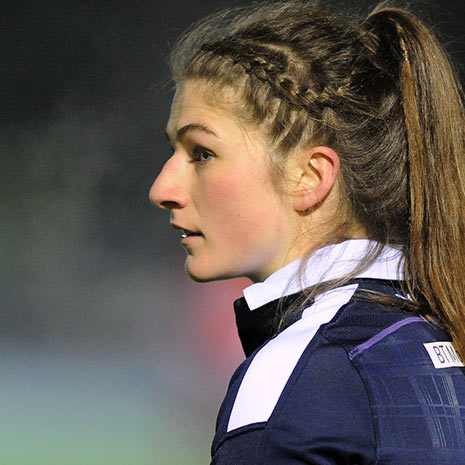You are what you eat.
The Rugby World Cup in England is fast approaching and teams are well under way with their pre-season preparations for their club and country. Players are being put through gruelling camps to achieve peak fitness in a bid for glory. England and Wales have been focusing on altitude training by travelling to Denver, USA and Fiesch in Switzerland. It gets worse for the Welsh team as their training camp is planned to involve cryotherapy chamber sessions and being exposed to temperatures of -160C to maximise recovery.
The Southern hemisphere sides will be preparing a bit differently as they have the small matter of the Rugby Championship to contend with between now and then. While all teams will be training in their own way in the lead up to the World Cup, you can guarantee that their nutritionists will be working overtime to ensure all players are eating perfectly to optimise performance.
While you may not have a personal nutritionist or a cryotherapy chamber to help you to recover during your pre-season, you can ensure you are eating the right foods to complement your training.
We sat down with personal trainer Dean Robertson to get his thoughts on what you should be eating and when to get the most out of your pre-season.
Pre-season
Pre-season training is the one that players usually dread. Athletes often subscribe to this state- of-mind as they believe they’ve had a very unproductive off-season. In the off-season, you’ll more than likely have been a lot more relaxed with your diet, enjoying the occasional (or frequent) over indulgence in your favourite foods and drinks.
In order to tackle this negative psychological frame of mind, switch the mentality and realise that pre-season is an opportunity, not a chore. In order to tackle this negative psychological frame of mind, switch the mentality and realise that pre-season is an opportunity, not a chore.
It’s an opportunity for you to make fantastic gains in your fitness level at the same time as having an amazing training environment full of motivated team-mates and encouraging coaches.
When it comes to pre-season, your diet should be matched to your specific goal which should be based on your position and your current fitness levels. Below is a list of general goals and some nutritional advice to help achieve them.
Building Muscle
In order to build muscle, it is essential that you provide the body with the correct amount of energy in order to lay down new muscle tissue. This simply won’t happen if you have a calorie deficit, so you must ensure that you are eating enough high quality food. If you are losing weight throughout your pre-season, it’s advisable to reconsider your diet and eat more so you are providing your body with the adequate fuel. Muscle is made of protein (amino acids) and therefore it’s important to ensure you are consuming enough of it to repair the damage from training and build muscle tissue. There are many numbers quoted for protein requirements but there is strong evidence to support that 1.5 – 2g per kilo of body weight (sometimes even higher) is sufficient protein intake for athletes. This would mean that a 100kg athlete should be consuming around 150-200g of protein per day. Start with this number and adjust as necessary.

Building Strength
Building strength is closely related to the building of muscle – if you are not fuelling your body to endure difficult training sessions and promote adequate recovery, you will struggle to make real advancements in strength. So again, fuel your body with enough protein.
Losing Body Fat
The big one. Everyone wants to be leaner but the topic is almost unapproachable due to the amount of confusion regarding fat loss. The details of this topic are far beyond the scope of this article however it is generally regarded that the following changes within pre-season will aid the loss of body fat.
Training Volume: you’ll be training more in pre-season so naturally your body will begin to lose body fat due to the extra energy that you will be burning during training.
Training Frequency: you’ll likely be training more often during pre-season therefore you’ll be burning more energy on a more frequent basis, further improving the likelihood of encouraging fat loss.
So don’t go into too much detail within your nutrition on how to lose body fat as it will likely happen as a result of your pre-season increase in training volume and intensity anyway.
This leads us into how to set up your diet for the all-important pre-season.
Below is a list of things you should focus on when constructing your daily nutrition plan.
- Eat Enough – With the increase in training volume, you’ll need to ensure that you are ingesting enough fuel to perform at your peak and recover adequately.
- Focus on Quality Foods – Not only will this promote performance and recovery, it will also aid in keeping your body healthy in the long run. I recommend a majority focus on quality whole foods such as lean proteins, vegetables, fruits, rice, potatoes, oats and nuts.
- Establish a Baseline: Keep a record of how much you are eating. If you “freestyle” your diet, there’s a chance that you are over or under eating. Aim to be consistent with your nutrition, give your body what it needs and don’t be afraid to make dietary adjustments as necessary.
- Have a Balanced Diet: Protein, fats and carbohydrates are particularly essential for athletes. The key in the consumption of these macro-nutrients is getting the combination right. Exact amounts of each macro-nutrient depends largely on the individual however it is accepted that each meal should contain every macro-nutrient to fuel performance and aid recovery.
| Example Daily Meal Plan (For players in intensive pre-season training regime. Customise your meal plan for your needs.) | |
|
|
|
| Meal 1 | 3 whole eggs cooked in 5g Butter or Coconut Oil |
| 75g Oats with Topping (fruit/honey/nuts) | |
|
|
|
| Meal 2 | 30g Whey Protein (Shake) 250g Natural/Greek Yogurt + handful of Mixed Nuts and 1-2 pieces of fruit |
|
|
|
| Meal 3 | 200g Chicken and 250g rice/pasta/potatoes and mixed salad |
|
|
|
| Meal 4 – Pre Exercise | 75g Oats, 20g Whey Protein, 1/2 TbSp Peanut Butter or handful of Almonds |
|
|
|
| Meal 5 – Post Exercise | 200-250g Chicken/Beef/Fish with minimum 250g Rice/300g Sweet Potato and mixed leafy vegetables |
|
|
|
| Meal 6 – Before Bed | Small meal: 3 Egg Omelette/Scrambled with 2 slices of Toast |
|
|
|
| Hydration | Different for each individual – minimum 2-3 litres of water throughout day |

It’s important to note that this is just an example of a daily meal plan. Diet is not something that is set in stone and should be altered regularly to cope with the demands of your specific training/goals.
Pre-Season can be a trying time but if you’re in the thick of it, make the most of it. What you eat during this time can be as important as your training, so take a look at our example meal plan and adapt it to your training regime. Remember it may be that you don’t need to put on any more muscle (we hear Manu Tuilagi has this problem) and you should adjust your nutrition accordingly.
BIO: Dean Robertson has an MSc in Strength and Conditioning and has many years’ experience in the fitness industry as a gym instructor and now runs a successful personal training business (Elysium Personal Training). He also organises educational nutrition seminars throughout Scotland with guest speakers consisting of industry leaders from around the UK.




Comments